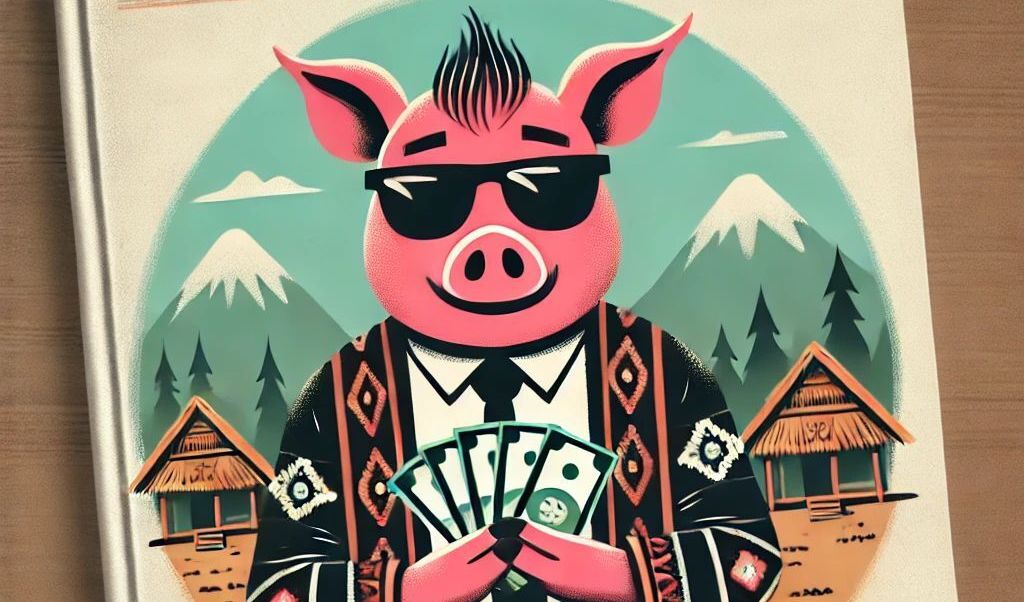
Ah, the sweet aroma of friendship in Nagaland – where borrowing money is practically a state sport, and getting it back is the endurance test of a lifetime. Here in the land of hills and heartfelt hospitality, the moment you lend money, you’re entering a mysterious dimension where time stands still, and your cash goes into witness protection.
Picture this: a friend approaches you with all the humility of a saint who’s just come back from a month-long meditation retreat. “Dear brother,” they say, eyes glistening like they’ve just seen the face of the divine. “I need a little help, just for a day or two.” You nod, charmed by their sincerity, and hand over your hard-earned money. Little do you know, you’ve just entered the Money-Lending Twilight Zone.
Two days pass, and you’re itching to ask for your money back. But wait! In Nagaland, you don’t simply ask for your money back. Oh, no. You must now present your case like you’re auditioning for a reality TV show about tragic financial backstories. You text them, call them, maybe even send a carrier pigeon.
It’s like playing chess with a master who has an infinite supply of excuses at their disposal. “Hey, remember that little amount I lent you?” I start casually. But they’re ready, like they’ve been preparing for this moment their whole life. “Ah, yes, I was just thinking about that!” they exclaim, as if struck by divine inspiration.
And then it begins: the epic recital of reasons why they can’t possibly return your money right now. “My grandmother is not well,” they start. “She needs a trip to the prayer center.” A prayer center? That’s a new one. But before I can even blink, they’re onto the next chapter. “And my uncle’s cousin’s goat is having some kind of existential crisis. So, you know, I’ve been really busy.”
Days turn into weeks, and soon it’s like you’re playing the longest game of hide and seek. Calls go unanswered, your messages become like desperate diary entries, and your friend’s new hobby seems to be avoiding you in public places.
Then there’s the next level – the Ghosting Guru. These are the ones who, after the initial post-borrowing charm offensive, suddenly become as elusive as the Ninjas. They vanish from social media, stop responding to texts, and when you do manage to corner them, they’re suddenly “in between jobs,” “focusing on self-care,” or “discovering minimalism,” which apparently includes minimal contact with you.
And don’t even think about lending money to close friends. That’s like holding a farewell party for your friendship. The cash might come back (highly unlikely), but the bond? Gone forever. In Nagaland, lending money to a close friend is basically like signing a contract that says, “I promise to never speak to this person again, except at weddings, funerals, and accidental run-ins at the grocery store.”
But here’s the real kicker: after all this drama, if you still manage to extract a promise of repayment, congratulations! You’ve just made it to the final round of Nagaland’s favorite game show: “Who Wants to Beg for Their Money Back?” You’ll hear every excuse in the book, from “The dog ate my savings” to “I’m saving for an emergency. Yes, another one.”
So, what’s the lesson here? Simple. Never lend money unless you’re prepared to lose it—and possibly your friend. In Nagaland, lending money is a one-way street with no U-turns, and it’s filled with potholes of reasons, excuses, and heartfelt apologies. It’s a journey where your patience is tested, your forgiveness is stretched, and your wallet is left empty.
But hey, at least you’ll have a great story to tell… while someone else tells you about their latest trip to the prayer center!
And so, dear readers, the moral of the story is clear: In Nagaland, lending money is a game for the brave, the foolish, and the eternally optimistic. It’s a test of patience, a lesson in human behavior, and an endurance challenge all rolled into one. So, the next time someone asks you for a “small loan,” remember: you’re not just lending money; you’re signing up for a masterclass in polite persistence… or as we like to call it, “The Art of Begging for What’s Rightfully Yours.”